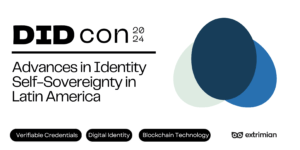Overview
IPFS, known as InterPlanetary File System, is a revolutionary peer-to-peer protocol designed to create a distributed and decentralized method of storing and sharing hypermedia in a content-addressable manner. It offers a robust alternative to the traditional HTTP protocol for web content distribution, providing improved efficiency, permanence, and resilience.
Key Features
Content Addressing
IPFS employs content addressing to uniquely identify and retrieve data based on its content rather than its location. Each piece of content is assigned a unique cryptographic hash, serving as its address on the network. This approach enables efficient content distribution and caching.
Decentralization
IPFS operates as a decentralized network of interconnected nodes, with each node storing and serving content to other nodes. This distributed architecture eliminates single points of failure, ensuring robustness and fault tolerance even in the face of network disruptions or attacks.

Versioning and History
IPFS maintains a versioned history of all content, allowing users to access previous versions and track changes over time. This feature enhances data integrity and facilitates efficient content synchronization and collaboration among users.
Offline Access
IPFS supports offline access to content by enabling nodes to cache and replicate data locally. This capability allows users to access content even in disconnected or low-bandwidth environments, making it ideal for applications in remote or resource-constrained settings.
Use Cases
Decentralized Web Hosting
IPFS enables decentralized web hosting by allowing users to publish and distribute static websites and web applications without relying on centralized servers. This approach enhances censorship resistance and reduces hosting costs, making it suitable for content creators and developers seeking greater control over their online presence. Projects like Fleek and Pinata offer services for hosting websites and applications using IPFS.
Content Distribution
IPFS can be utilized for distributing large files, media assets, and software updates in a peer-to-peer manner. Its efficient content addressing and caching mechanisms improve download speeds and reduce bandwidth costs, making it an attractive option for content delivery networks and file-sharing applications. For instance, Protocol Labs uses IPFS in projects like Filecoin to create decentralized storage networks.
Data Preservation
IPFS facilitates long-term data preservation by providing a permanent and tamper-proof storage solution for archival content. Its content addressing and versioning features ensure that data remains accessible and verifiable over time, making it valuable for organizations and institutions seeking to safeguard valuable information and cultural heritage. The Internet Archive has started to experiment with IPFS for storing and distributing archived content.

Advanced Features
Content Discovery
IPFS provides mechanisms for efficient content discovery, allowing users to locate and access content across the network. Content discovery is facilitated through a distributed hash table (DHT) and content routing protocols, enabling users to find and retrieve data even if they do not know the exact location of the content.
File Versioning and Collaboration
IPFS supports file versioning and collaboration features, allowing multiple users to collaborate on documents and track changes over time. Users can create immutable snapshots of files, making it easy to revert to previous versions or merge changes from multiple contributors seamlessly.
Dynamic Content Updates
IPFS enables dynamic content updates by allowing users to publish mutable links that point to the latest version of a resource. This feature is useful for applications requiring real-time updates, such as news websites, social media platforms, and collaborative editing tools.
Real-World Implementations
Decentralized Social Media Platforms
Several decentralized social media platforms leverage IPFS for content storage and distribution, offering users greater control over their data and privacy. Examples include Peepeth and Mastodon, which use IPFS to host user-generated content and media files.
Decentralized Finance (DeFi) Applications
IPFS is utilized in various decentralized finance (DeFi) applications for storing and distributing financial data, such as market data, transaction histories, and smart contract code. Projects like Uniswap and Compound integrate IPFS to ensure transparent and censorship-resistant access to financial information.
Decentralized Autonomous Organizations (DAOs)
IPFS serves as a foundational component in decentralized autonomous organizations (DAOs), enabling the storage and distribution of governance documents, proposals, and voting records. DAO platforms like Aragon and DAOstack leverage IPFS to create transparent and auditable governance processes.
Future Directions
IPFS Integration with Web3 Technologies
IPFS is poised to play a central role in the emerging Web3 ecosystem, which aims to decentralize various aspects of the internet infrastructure. Integration with technologies such as blockchain, decentralized identifiers (DIDs), and zero-knowledge proofs (ZKPs) will enable new use cases and applications in areas like decentralized identity, decentralized finance, and decentralized governance.
Scalability and Performance Improvements
Ongoing efforts to enhance the scalability and performance of IPFS are underway, including optimizations in content routing, storage, and retrieval mechanisms. Projects like Filecoin aim to complement IPFS by providing incentives for storing and retrieving content, further improving the resilience and efficiency of the network.
Relation with Other Technologies
Extrimian Academy
Explore and learn more about integrating IPFS into projects or businesses through the Extrimian Academy.
DIDs (Decentralized Identifiers)
Discover how DIDs are integrated with IPFS for decentralized identity management.
DeSci (Decentralized Science)
Learn about the utilization of IPFS in decentralized science initiatives.
Digital Identity
Explore the role of IPFS in transitioning from centralized to decentralized digital identity systems.
QuarkID
Learn about the integration of IPFS with the QuarkID SSI protocol developed for Latin America.
SSI (Self-Sovereign Identity)
Understand the role of IPFS in self-sovereign identity ecosystems.
VCs (Verifiable Credentials)
Explore how IPFS is utilized in the issuance and verification of verifiable credentials.
ZKP (Zero Knowledge Proof)
Discover the integration of IPFS with zero-knowledge proofs for privacy-preserving authentication.
Conclusion
IPFS offers a decentralized and resilient approach to content storage and distribution, with applications spanning web hosting, content delivery, data preservation, and decentralized identity management. Its integration with other emerging technologies opens up new possibilities for building secure, privacy-preserving, and censorship-resistant systems across various domains. As the adoption of IPFS continues to grow, it promises to play a significant role in shaping the future of the decentralized web.
This technology represents a fundamental shift in the way content is stored, distributed, and accessed on the internet. With its decentralized architecture, content addressing mechanism, and peer-to-peer communication protocols, IPFS offers a robust alternative to centralized content delivery systems. As the adoption of IPFS continues to grow and evolve, it holds the potential to redefine the future of the internet and empower users with greater control over their digital assets and online interactions.







